Are you considering requesting additional course credits but unsure how to approach it? Crafting the perfect letter can make all the difference in conveying your needs and intentions clearly. In this article, we'll guide you through the essentials of writing a compelling request that showcases your dedication and rationale. Ready to delve deeper into the art of effective communication? Let's get started!

Subject Line Optimization
Subject line optimization for requesting additional course credits should be concise, clear, and informative. A well-constructed subject line captures the reader's attention and indicates the content's urgency and purpose. Examples include "Request for Additional Course Credits - [Your Name], [Course Title]" or "Inquiry Regarding Additional Course Credit Eligibility - [Your Name]." Including specific details such as your name, course, and purpose ensures the recipient understands the email's intent at a glance, facilitating quick identification and response. Properly crafted subject lines improve communication efficiency and highlight your professionalism in academic requests.
Clear Purpose Statement
Requesting additional course credits can enhance academic standing and provide opportunities for deeper learning. Many institutions allow students to petition for extra credits to recognize prior learning experiences or intensive study efforts. For example, institutions like the University of California often have guidelines outlining specific procedures and requirements for such requests. Considerations may include demonstrating how additional credits correlate with curriculum goals and supporting documentation, such as syllabi or certificates of completion. Clear communication, detailing the rationale for additional credit, can significantly improve the chances of a favorable response. Supporting evidence could relate to comprehension of course material, real-world applications of knowledge, or unique projects completed that extend beyond the standard curriculum.
Relevant Academic Details
Many universities allow students to request additional course credits for various reasons. Academic requirements often dictate that a student must complete a certain number of credits for graduation, typically around 120 credits for a Bachelor's degree. In some cases, students may opt to exceed the standard credit load, which generally ranges from 12 to 15 credits per semester to enrich their academic experience. The process usually requires submitting a formal request to the academic advising office, including details like the student's full name, student ID, and specific courses for additional credits. Each institution may have its own criteria for approving such increases, often considering past academic performance, like maintaining a GPA above 3.0, and the relevance of the requested courses to the student's degree program. Additionally, deadlines for submitting these requests may vary by semester, emphasizing the importance of timely action within the academic calendar.
Reason for Request
Students often seek additional course credits to enhance their academic profile and fulfill graduation requirements in institutions such as universities. The request typically arises from a desire to deepen knowledge in a particular field, such as Computer Science or Business Administration, leading to improved future career opportunities. Financial aid considerations often drive the request; additional credits could potentially shorten time to degree completion and reduce overall tuition costs. Academic standing also plays a significant role, as students with strong GPAs may feel encouraged to take on extra courses to maintain or improve their academic competitiveness. Understanding departmental guidelines and procedures outlined by the registrar's office is crucial for the successful submission of such requests.
Polite Closing and Contact Information
In a formal request for additional course credits at an academic institution, it is essential to include a respectful closing statement. A common polite closing includes phrases such as "Thank you for considering my request" or "I appreciate your time and attention to this matter." Following this closing, provide clear contact information to facilitate communication. Include your full name, student identification number (if applicable), email address, and a phone number where you can be reached. This ensures that the recipient can easily respond or seek further clarification regarding your request for additional credits.

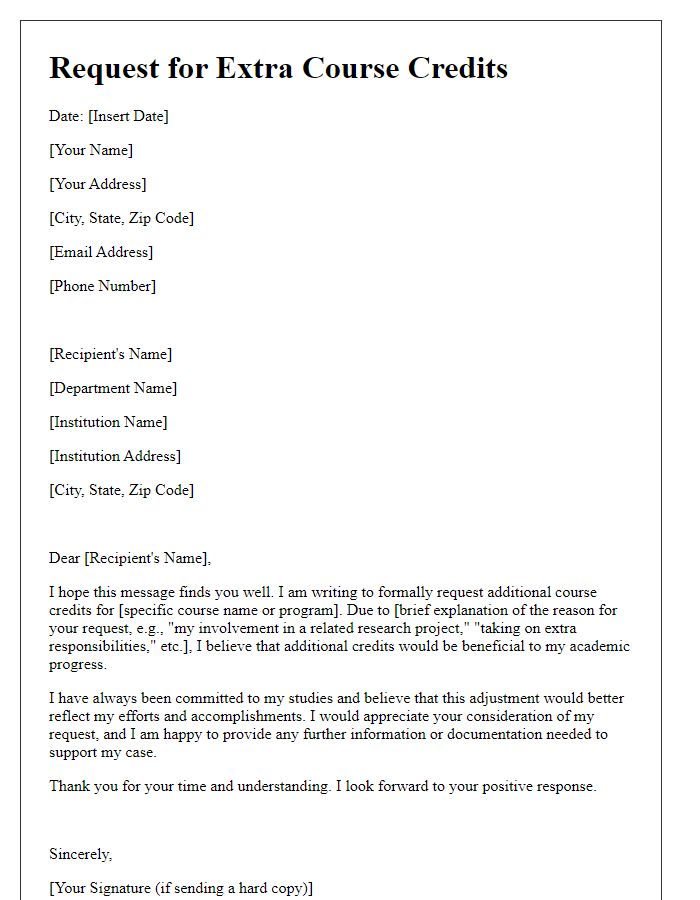
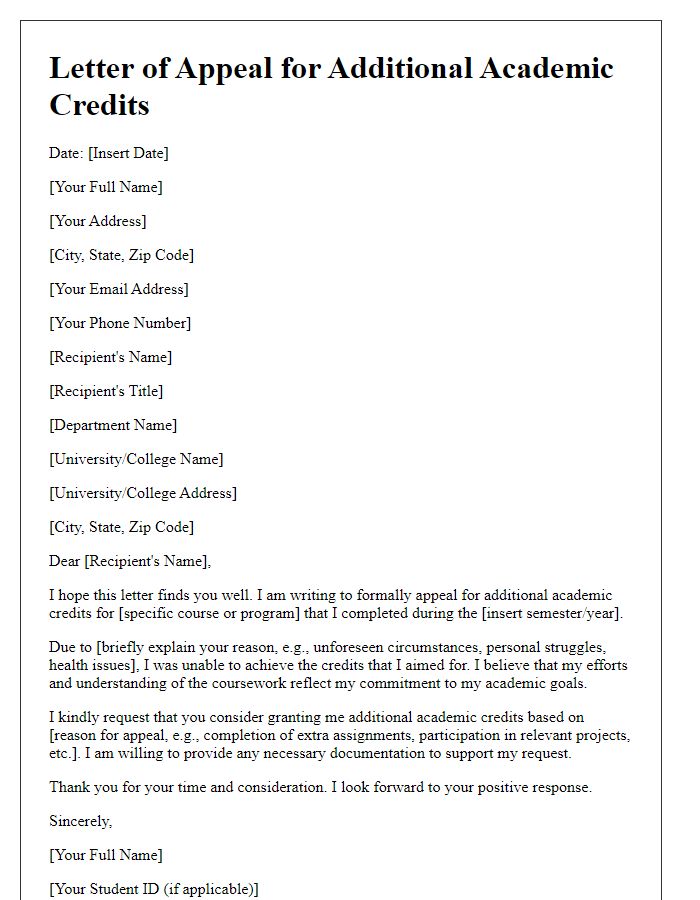
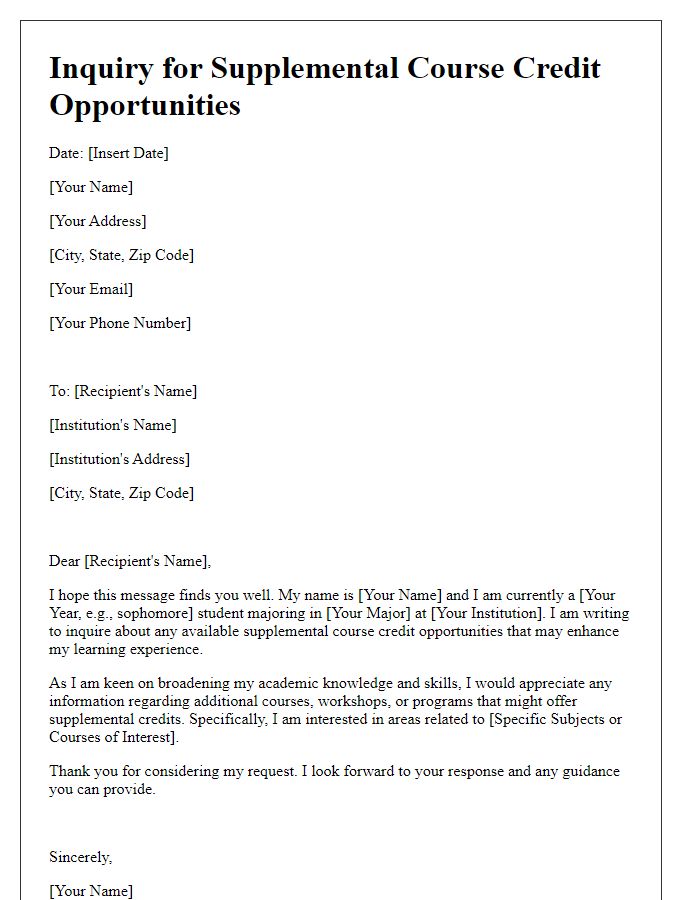
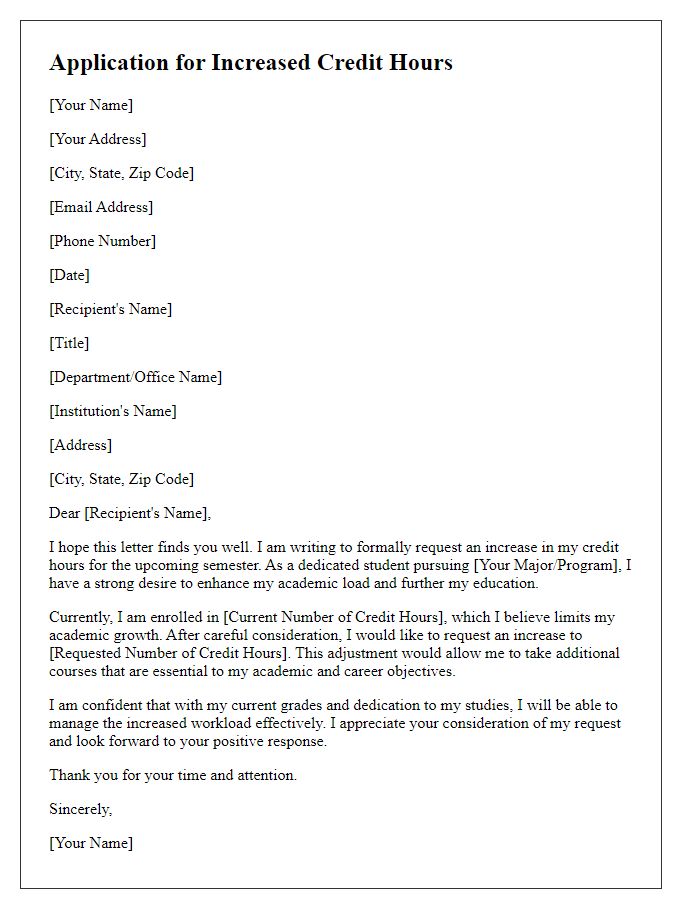
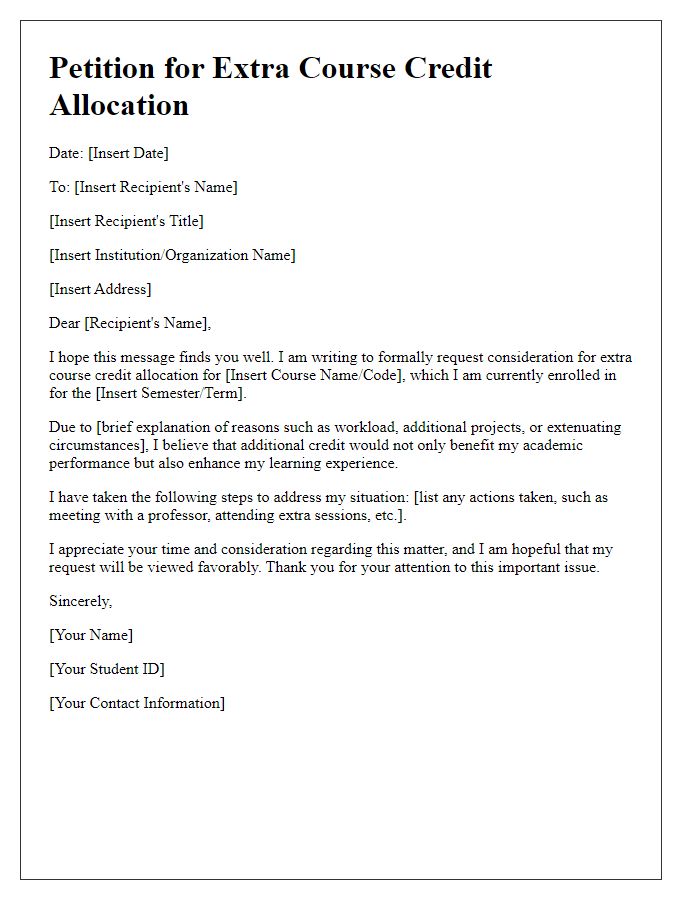
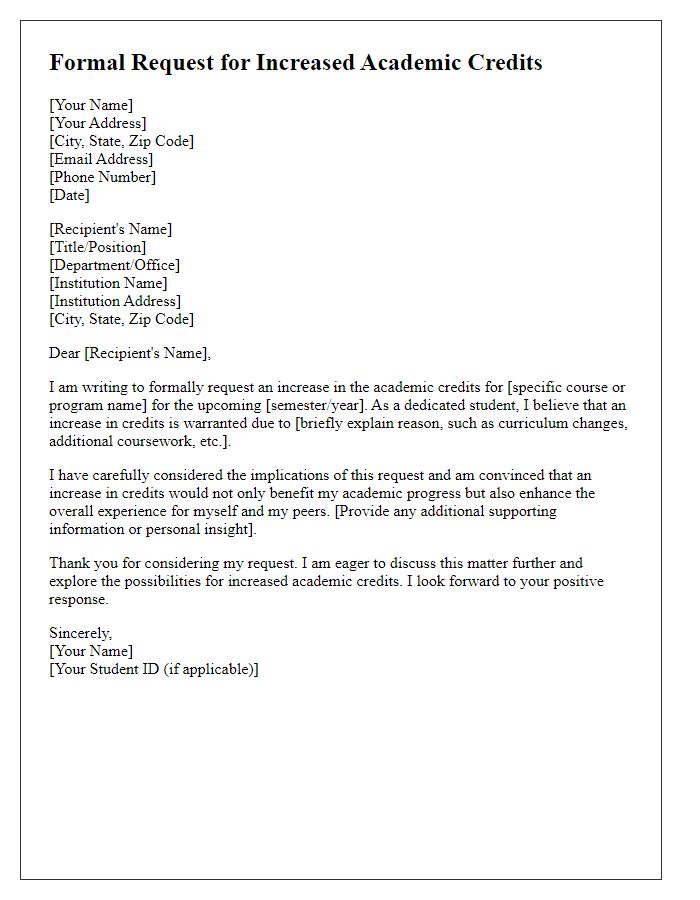
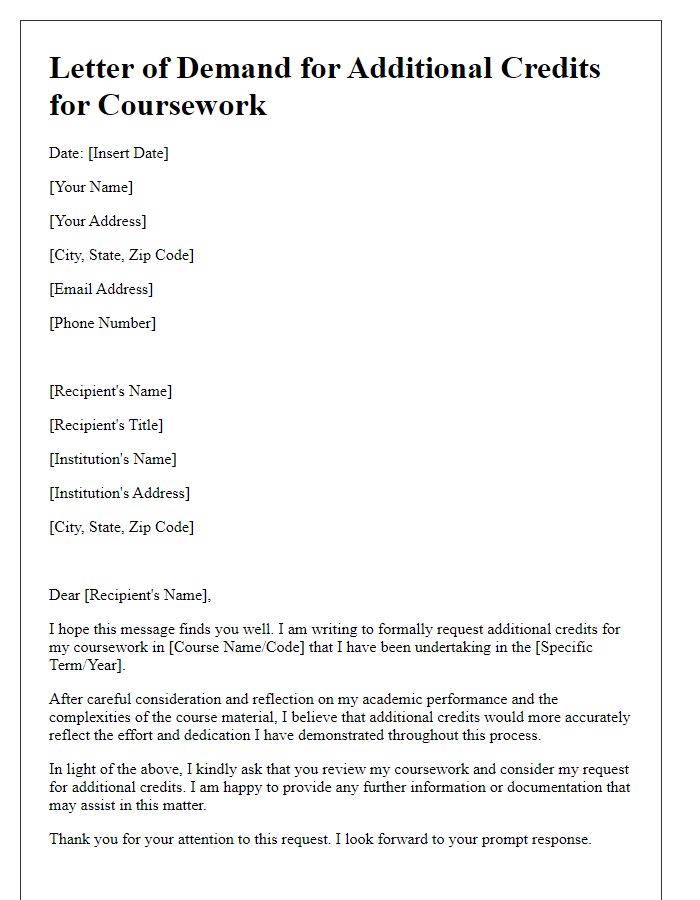
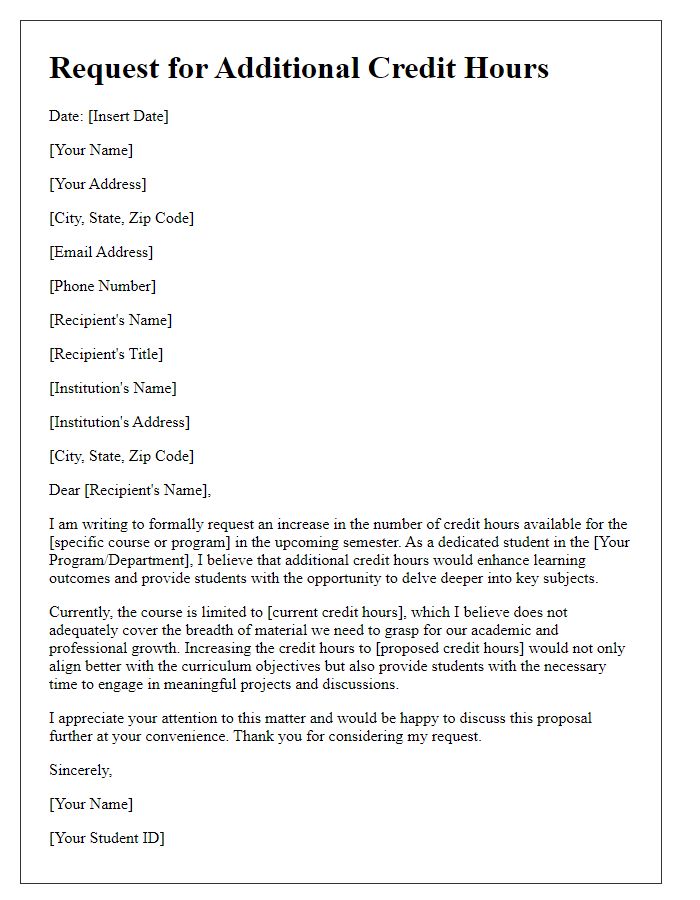
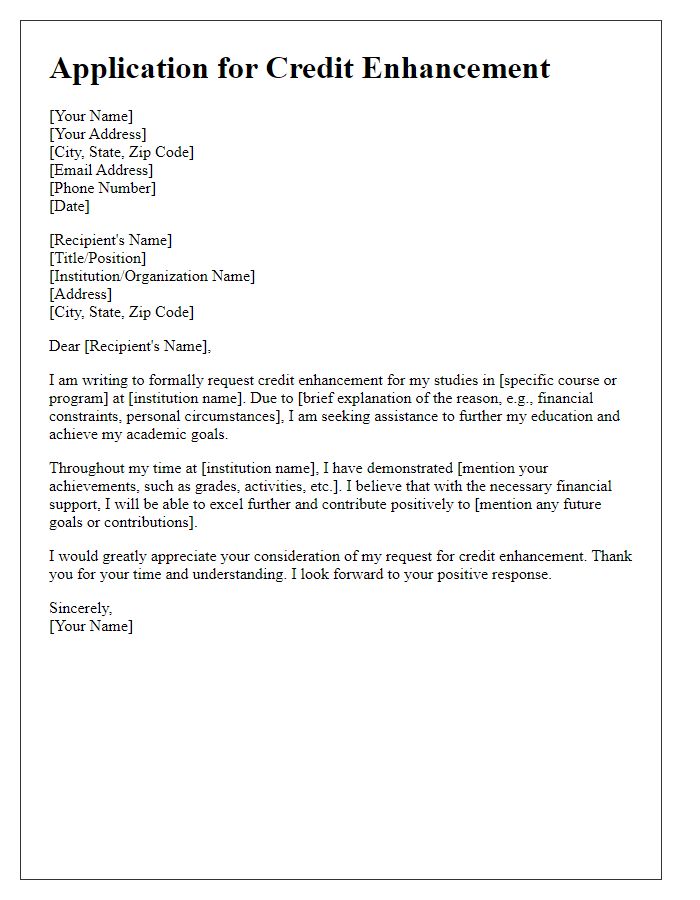
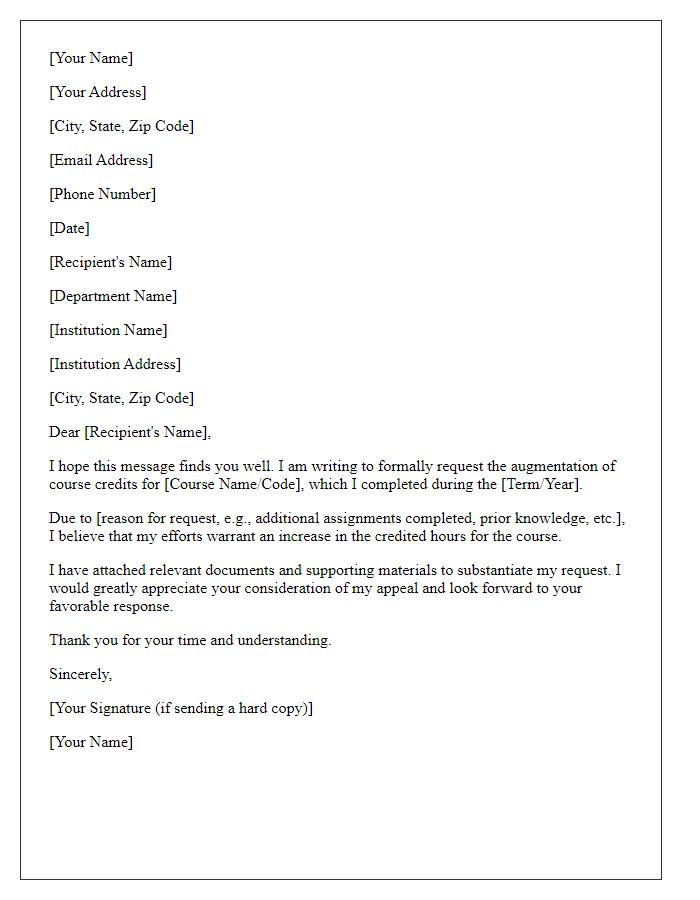





Comments